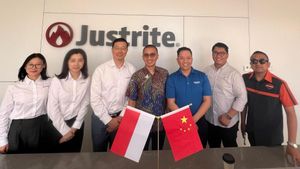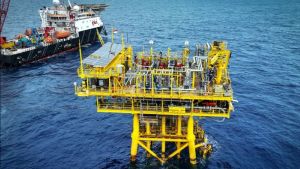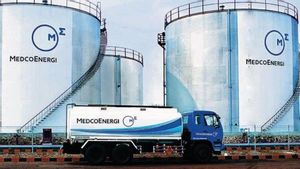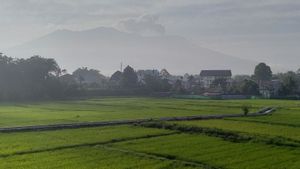JAKARTA - PT Medco Energi Internasional Tbk (MedcoEnergi) through its three subsidiaries in the oil and gas sector carried out an addendum to the signing of Gas Sale and Purchase (PJBG) for several of its oil and gas assets with PGN and PT PLN (Persero).
"The SIGNing of PJBG from several of our oil and gas assets is a form of the Government's trust in MedcoEnergi and the Company's real commitment to maintaining national energy security," said COO MedcoEnergy Ronald Gunawan, Tuesday, June 25.
The following are the details of the PJBG:
1. PT Medco E & P Tarakan and PT Perusahaan Gas Negara Tbk (PGN) signed a PJBG to supply household gas needs in Tarakan. Gas is produced from the Tarakan Working Area (WK) with a Total Contract Number (TJK) of 982.20 mmscf. The contract is effective from January 14, 2022 until the end of the production of the Tarakan WK gas or the end of the Tarakan PSC.
2. Medco Energi Madura Offshore Pty. Ltd. and PGN signed a PJBG addendum for buying and selling gas from Maleo Field and Opportunities to meet the needs of the East Java industry. This addendum is an extension of PJBG Maleo with an estimated TJK of 8 tbtu. The contract starts from January 1, 2024 to December 3, 2027.
3. Medco Energi Sampang Pty. Ltd. SIGNing the PJBG addendum with PT PLN Indonesia Power which is an extension of the Sampang PJBG. Gas is obtained from Oyong Field, Carrotel and Blue Whale at WK Sampang. TJK estimates of 30.6 tbtu with a contract period from September 1, 2022 to December 3, 2027.
Ronald said, apart from PJBG, MedcoEnergi also purchased gas for its operational needs through Changes and Re-Declaration of PT Medco E & P Indonesia and PT Pertamina EP for the needs of oil and gas production operations at the Cooperatives Field, Serdang and Ibul, South Sumatra.
SEE ALSO:
The estimated purchase of TJK is 1,751.73 mmscf. The contract period is effective from 28 November 2013 to 31 December 2030 or the fulfillment of TJK.
"This collaboration has the potential to produce a reduction in CO2 emissions of 1,095 tons per year, compared to the use of diesel machinery with a consumption of 4,000 liters per day," concluded Ronald.
The English, Chinese, Japanese, Arabic, and French versions are automatically generated by the AI. So there may still be inaccuracies in translating, please always see Indonesian as our main language. (system supported by DigitalSiber.id)
















